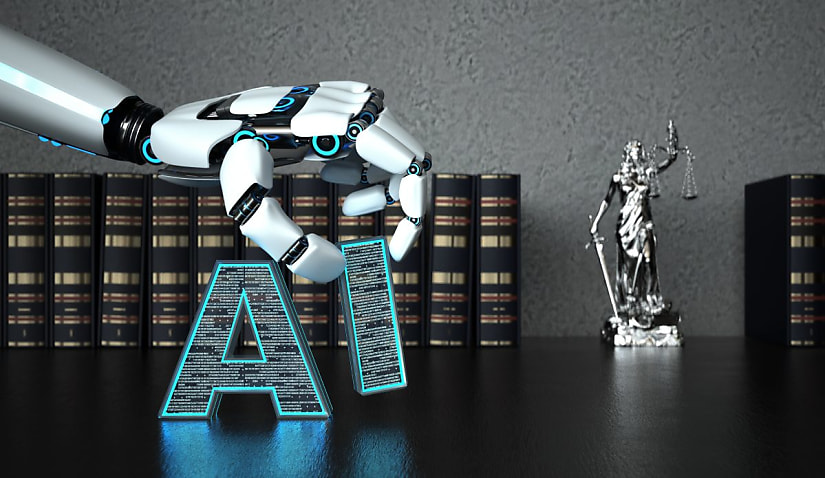Powered by MOMENTUM MEDIA
As some artificial intelligence platforms are now able to pass the bar, this legal professor said that the future of law lies in AI – and that lawyers will need to consistently showcase their value to society moving forward.

Despite the practice of law being limited to those admitted as licensed legal practitioners in the jurisdiction, Chat GPT-4 has been revealed to be competent enough to pass a bar examination.
As such, Professor Michael Legg, an expert in legal innovation from the School of Private and Commercial Law, UNSW Law & Justice, predicted that AI will continue to disrupt the legal profession and raise questions about who, or what, can be a lawyer.
“Anybody, any entity, can provide legal information, including AI systems. But the provision of legal advice needs to be done by a lawyer because it’s not just enough to get the law right; it needs to be applied to a client’s circumstances and needs,” he said.
“AI doesn’t have to comply with ethical responsibilities like a duty to act in the client’s best interest that sets lawyers apart.”
Professor Legg added that the world could be quick to celebrate the potential cost savings from automation and overlook the other costs of replacing human lawyers that may harm society.
“There are very good reasons why we have the legal profession and why we limit the practice of law to lawyers who are qualified to do so,” he said.
“Part of that is to protect the client and ensure the quality of legal services, but lawyers also play a critical role in upholding the rule of law and maintaining a just society.”
However, advances in artificial intelligence are already beginning to change the nature of legal work for lawyers, helping make them more effective and efficient.
“AI can speed up legal research and help draft contracts and other legal documents. It can review huge numbers of documents for discovery in litigation or for due diligence in a transaction,” Professor Legg added.
“For dispute resolution, like small claims, particularly those where the cost of accessing legal services would be disproportionate to what is at stake, they may be able to interact with a chatbot that provides legal information at little-to-no cost.”
Therefore, more law firms will likely adopt proprietary AI systems tailored to their needs. However, lawyers must also learn how these systems work to be able to use them effectively and manage risks, according to Professor Legg.
“From the consumer side, even though we’re likely to see more low-risk self-serve style legal products become available, they will still require some level of oversight from a lawyer to manage the inherent risk of relying on an AI system when it gets it wrong,” he added.
“From the lawyers’ side, if we look at generative AI like ChatGPT, it can be trained to read legislation and judgments and draft documents, but it still needs oversight from a lawyer who effectively takes responsibility for what is produced.”
But there are still many aspects of the legal profession that no amount of AI development would likely be able to automate or replace, such as human-centric and soft skills.
“There may be an AI-enhanced lawyer, who is more efficient and effective at their job, but it’s still the human skills that distinguish them from the machine and to continue to add value,” Professor Legg said. “It’s the ability to address the novel and the uncertain problem through practical wisdom and judgement, but also to listen and provide empathy,” he said.
“While the legislation that deals with the practice of law could be amended to allow AI and machine-provided services to practise law, whether society would want that is another question.”
Moreover, Professor Legg emphasised that society must also ask how AI would comply with ethical and professional responsibility requirements applicable to lawyers.
“Can AI be programmed to advance the client’s interests but be independent and comply with a paramount duty to the court and the administration of justice? The lawyer has an ethical obligation to their client’s best interests, but it is not just about serving a client,” he concluded.
“They’re also there to support the administration of justice and uphold the rule of law, and while not always perfect, those ethical obligations make human lawyers essential to a well-functioning society.
“Ultimately, lawyers are there to serve society, and that idea can get lost sometimes. But if the profession wishes to remain of service, it can’t be complacent. It’s up to lawyers to continue demonstrating their value to society.”

Lauren is a journalist at Lawyers Weekly and graduated with a Bachelor of Journalism from Macleay College. Prior to joining Lawyers Weekly, she worked as a trade journalist for media and travel industry publications and Travel Weekly. Originally born in England, Lauren enjoys trying new bars and restaurants, attending music festivals and travelling. She is also a keen snowboarder and pre-pandemic, spent a season living in a French ski resort.